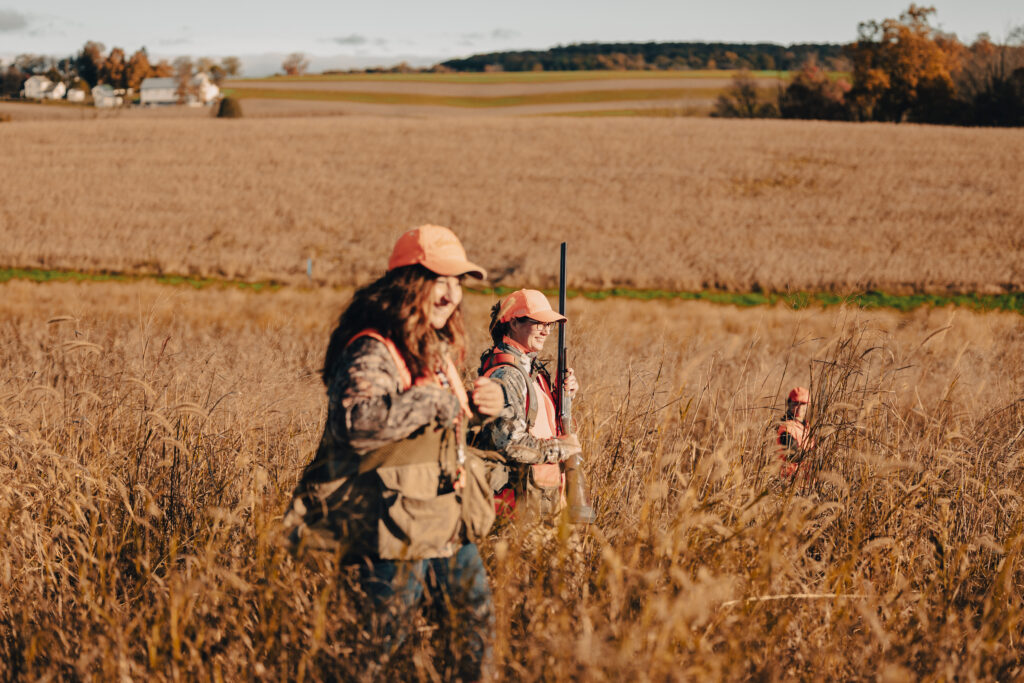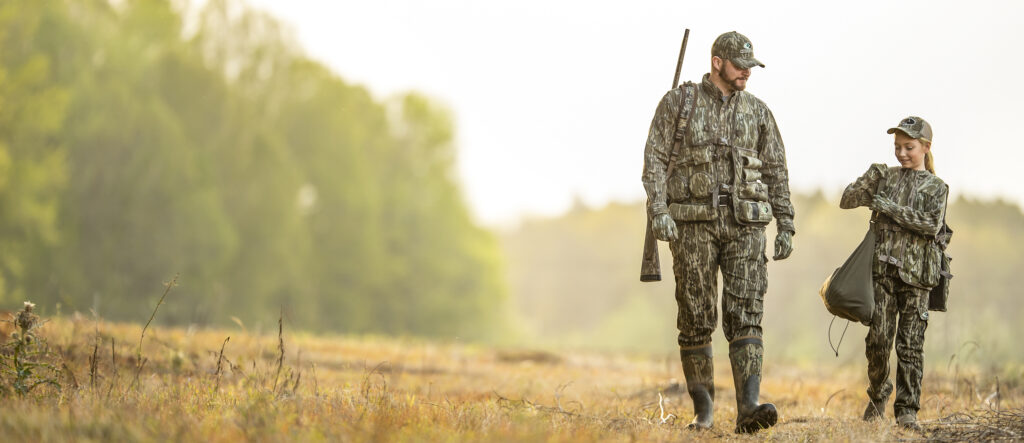What happens when a state spends its dedicated fisheries and wildlife funding on potholes or property taxes?
By Andrew McKean
Like many Americans, Joe Arterburn’s money doesn’t go as far as it used to. On the one hand, it’s being whittled away by inflation. On the other hand, Arterburn is spending a disproportionate share of it on his Nebraska state property taxes, which are going up as property values rise.
His governor has proposed some relief. Gov. Jim Pillen’s “Operation Clean Out the Closets,” which he announced in his state-of-the-state address in January 2024, proposes to sweep cash “hoarded” by state agencies into Nebraska’s general fund, where it could be used as a one-time windfall to reduce property taxes.
That clean-sweep might work for state agencies that hold taxpayers’ funds, but Pillen’s initiative also affected Nebraska’s Game Fund and the state’s Habitat Fund, both of which hold federal money that’s generated by the sale of guns, archery equipment, and ammunition. Those funds are part of America’s conservation-funding mechanism, and Pillen’s action, approval of which has been making its way through Nebraska’s unicameral legislature, threatens to destabilize a system that’s funded fish and wildlife management for nearly a century.
The action in the Cornhusker State mimics a similar proposal last year in Pennsylvania, in which the state’s senate proposed to transfer $150 million from the Game Fund. That action was walked back after a firestorm of protest from Pennsylvania hunters and anglers as well as national conservation groups.
The legislative actions in both Pennsylvania and Nebraska are defined as “diversions” of specially earmarked funds, and because diversions are so disruptive to America’s conservation funding, it’s worth detailing here what diversions are, their consequences, and how hunters and anglers can resist similar diversions in their state.
WILDLIFE FUNDING 101
A large portion of state wildlife agencies budgets come from the sale of hunting and fishing licenses. It’s what’s called a “user-pay, public benefit” system in which the fees from hunters and anglers pay for wildlife management, habitat work, game wardens, and fish hatcheries, all of which benefit hunters and anglers by managing robust fish and wildlife populations and the public in general, by maintaining a healthy, clean environment.

Nearly 90 years ago, pioneers of America’s conservation movement recognized that license dollars wouldn’t be enough to fund all the work that agencies needed to do to restore wildlife, clean up polluted streams, and conserve critical wildlife habitat. In 1937, in the heart of the Great Depression, these conservation pioneers established what was called the Pittman-Robertson (P-R) account — named after its legislative sponsors — that redirected an existing tax on guns and ammunition (archery gear was added later) to state wildlife agencies. The Tax and Trade Bureau collects these funds and sends them to the U.S. Fish & Wildlife Service who then distributes the funds to state wildlife agencies based on the number of hunting and fishing licenses sold and the geographic area size of the state.
Since the P-R fund was established, a similar account for aquatic habitat and fisheries management (the Dingell-Johnson or D-J Act) was added. That fund distributes taxes on fishing tackle such as rods, reels and lures. Boat fuel was added later under the Wallop-Breaux Amendment to the D-J Act.
These are not insignificant funds. Between 2022 – 2024, the USFWS allocated more than $3 billion in P-R funds to states, tribes, and territories. Nebraska’s Game & Parks Commission receives approximately $19 million annually while Pennsylvania Game Commission receives about $40 million each year. Note that those are just Wildlife Restoration Funds and don’t include Sport Fish Restoration funds for fisheries management.
Currently, the Pittman-Robertson and Dingle-Johnson Acts require protective language or state laws to be enacted to prevent diversion of those funds. Because these funds can be in the millions of dollars, some politicians view them as a target in hopes to redirect them. In Pillen’s case, the Game Fund balance is attractive to help reduce property taxes.
Those conservation pioneers from the Dirty Thirties recognized that state legislatures and governors might be tempted to redirect, or divert, those wildlife conservation funds, so they added some discouragement to the authorization approved by Congress. A state becomes ineligible for funds if it “diverts hunting and fishing license revenue from the control of the state fish and wildlife agency,” according to the legislation. That includes hunting and fishing licenses, as well as those sporting-goods excise tax revenues.
If a diversion occurs, the state is ineligible to receive further funds from the USFWS, but it gets worse. “The State fish and wildlife agency must replace all diverted cash derived from license revenue and the interest lost up to the date of repayment,” according to the administrative requirements of the funds. You can read all the requirements here.
NEBRASKA HUNTERS AND ANGLERS LOSE
With the interest penalty considered, Nebraska’s diversion could cost the state far more than the millions that Pillen wants to “sweep” into the general fund. Because the state is ineligible to receive additional P-R or D-J funds until the diversion is resolved, the penalty grows every year. What’s worse is that the P-R tax will still be collected from Nebraska residents who buy guns, ammunition, and archery gear, but their monetary contributions won’t be returned to their own wildlife agency to create more wildlife habitat or improve wildlife populations.
Faced with a similar dilemma last year, Pennsylvania’s senators eventually recognized the huge financial impact of their action and withdrew their diversionary legislation. But in 2024, the issue is still very much in play in Nebraska.
Last year, Pennsylvania’s chapter of Backcountry Hunters & Anglers, which rallied its members to fight the Keystone State diversion, had this to say about the Senate’s actions. “If passed into law, this amendment would not only dispossess Pennsylvania of a functioning wildlife agency able to manage its own finances, it would also deprive the hunters in our state of conservation funding they have already paid for.”
Replace Pennsylvania with Nebraska, and you get a sense of what’s at stake in the Cornhusker State, as well as any other state where either the governor or legislature intends to divert funds intended for fish and wildlife management.
Hunters and anglers who are concerned about maintaining recreational access, ensuring that they have huntable populations of wildlife and catchable numbers of fish, and want to make sure that their sporting-goods purchases have an amplifying effect at their wildlife agency should be aware of the danger of diversions.
Nebraska resident Arterburn is freshly aware of the consequences.
“I’m a lifetime Nebraska hunter. I’m an angler,” he says. “I want the Game & Parks Commission to do more, not less. And I’m not alone. I think the sportsmen of the state are waking up to this diversion, but we’re also not used to operating in the political arena. We’re more comfortable outdoors, not lobbying the legislature.”
America’s 60+ million active hunters, anglers, trappers and shooters (HATS) should be paying close attention to the goings on in their state legislature and at their state wildlife agency. Voicing your opinion is the best way to make sure wildlife conservation is funded, and managed, the way you would it to be.
SCIF supports state agencies as the best stewards of our wildlife resources, any funding from hunters and shooters should be kept to be used for wildlife management and conservation, and we are proud of hunters’ legacy of supporting conservation of all wildlife.
About the Outdoor Industry Communication Council (OICC):
Formed around the commitment to educate all Americans about the origins of conservation funding in America, the Outdoor Industry Communication Council (OICC) is managed by Outdoor Stewards of Conservation Foundation (OSCF) and Wildlife Management Institute (WMI). OICC works with outdoor writers such as Andrew McKean, to develop informative content that is available to all outdoor organizations and media at no cost. A primary goal of the OICC is to better inform and promote the positive contributions that wildlife agencies, industry manufacturers, NGO’s and end users such as hunters, anglers, trappers and target shooters make to conservation. Outdoor organizations interested in conservation are welcome to use any OICC content to expand the reach of messages created by the OICC. To become a member of the Outdoor Industry Communication Council, contact Jim Curcuruto of OSCF (203) 450-7202 jim@stewardsofconservation.org or Jon Gassett of WMI at (502) 330-9025 jgassett@wildlifemgt.org. There are no costs involved to become a member of the OICC. Members may utilize OICC materials as they see fit with no restrictions. For additional information visit https://www.outdoorstewards.org/outdoor-industry-communication-council-oicc/
This project is funded by the Multistate Conservation Grant Program (F23AP00404), a program supported with funds from the Wildlife and Sport Fish Restoration Program and jointly managed by the Association of Fish and Wildlife Agencies and the U.S. Fish and Wildlife Service.

